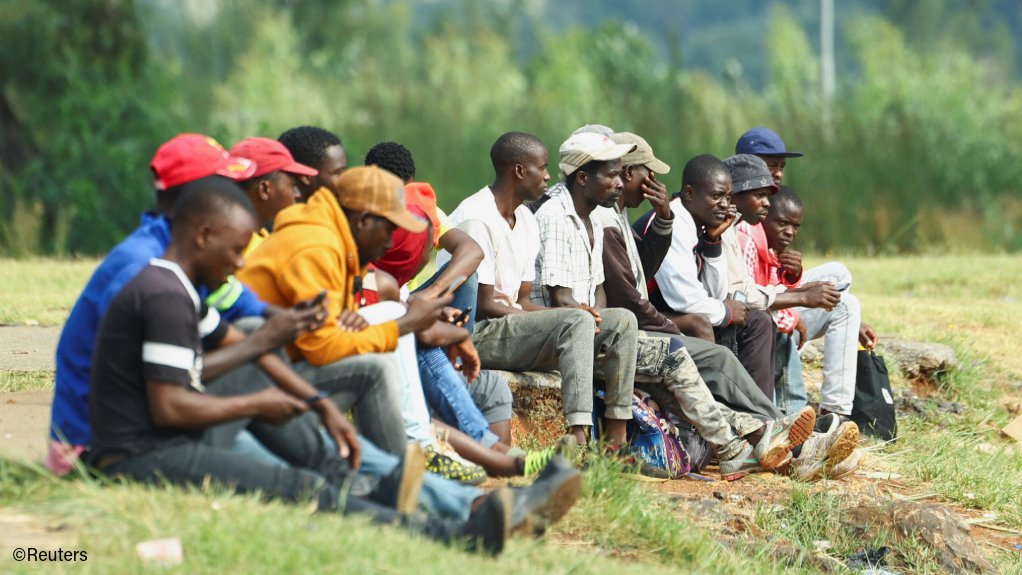Trade union Solidarity has warned that hundreds of thousands of jobs are at risk before Christmas and in the new year, followed “unfruitful” discussions with government during a meeting at the National Economic Development and Labour Council (Nedlac).
As many as 800 000 indirect and direct jobs may be affected if government does not urgently fulfil its promises, says Solidarity CEO Dirk Hermann.
The job losses will stem from widescale retrenchments and dismissals primarily in the ferroalloy industry, which has long warned that electricity tariffs have become too exorbitant to enable their operations to remain competitive.
Hermann explains that as many as 300 000 job losses are likely to occur at South Africa’s smelters and other related heavy industries, while an additional 500 000 jobs could be lost in the steel and manufacturing industry.
Companies in the smelting industry affected include Ferroglobe SA, Transalloys, Samancor Chrome, Assmang and MMC Nelspruit and Glencore-Merafe.
Glencore-Merafe has already completely shut down its ferrochrome operations across all its plant, comprising 22 furnaces, in Rustenburg and Lydenburg, while Assmang’s ferromanganese furnaces in Cato Ridge were shut down in May.
Hermann confirms that more employers are due to finalise their retrenchment processes within the next few weeks.
Despite this impending tsunami of retrenchments and dismissals, Solidarity says government has shown no sense of urgency during the Nedlac discussions or otherwise to try and mitigate some of the losses.
“This will turn into a social crisis, caused by government. It is not only companies that are affected, but communities,” Hermann points out, adding that at least four people in South Africa are dependent on one breadwinner in the household, which means that millions of people will suffer from the widescale job losses.
The latest looming retrenchments in the ferroalloy and steel sectors add to jobs already having been lost as a result of import tariffs implemented by the US, which will worsen with the end of the African Growth and Opportunity Act, and the 1 180 companies that have already been liquidated this year.
About 13 large-scale retrenchment processes since August have affected more than 31 000 jobs, confirms Solidarity general secretary Gideon du Plessis.
Statistics South Africa recorded an increase of 140 000 unemployed persons between the first and second quarters of the year.
Du Plessis and Hermann place the blame solely on government for not acting earlier to resolve diplomatic relations with the US, lowering electricity tariffs for large power users and improving local service delivery.
Eskom itself stands to lose 10% of its customer base, or R5-billion in yearly revenue, owing to large power users in the ferroalloy industry closing down, they warn.
“What we realised during the Nedlac process is that government has little understanding of redundancy and retrenchment, as if they are completely disconnected from reality. They also have a lack of empathy for the crisis we are facing,” Hermann states.
He adds that, with political will and strong leadership, these challenges could be resolved, citing employers’ arguments that there is not a coordinated response to their issues across government departments.
Du Plessis and Hermann confirm that government was adamant during the Nedlac meetings that there are, in fact, coordinated efforts being made and existing processes being followed to mitigate against job losses, with there being no need for further action.
Hermann affirms that the job loss crisis cannot be prevented in its entirety, but argues that it can be softened through, for example, urgently lowering electricity tariffs for these companies and curbing steel dumping in the country.
The problems that employers are experiencing, however, are structurally much deeper, Hermann states, with this also being government’s fault over the longer term.
Responding to what Solidarity plans to do next, Du Plessis says the union will not be bringing about more disruption by bringing the economy to a standstill, rather it will focus on protest action in local communities and by continuing to put pressure on government to help remedy the situation – once Nedlac has provided the necessary certificate.
“We are also putting plans in place to support people that have been dismissed, including through food programmes,” Hermann says.
EMAIL THIS ARTICLE SAVE THIS ARTICLE ARTICLE ENQUIRY FEEDBACK
To subscribe email subscriptions@creamermedia.co.za or click here
To advertise email advertising@creamermedia.co.za or click here











